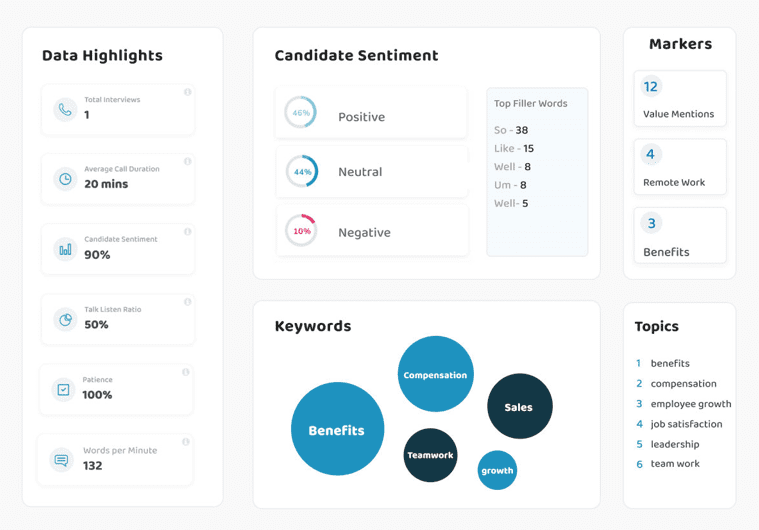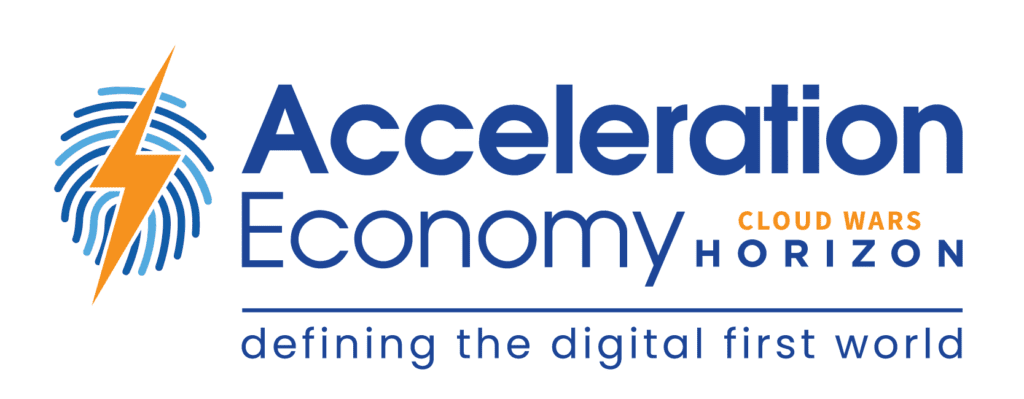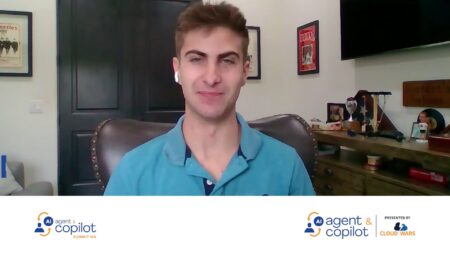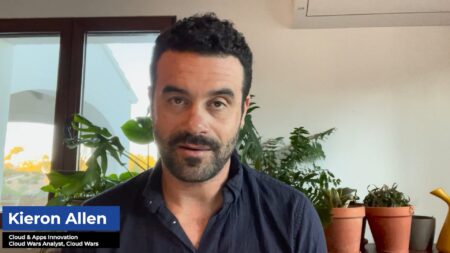Humanly is part of a profile series featuring startups participating in the Innovation Path at Cloud Wars Expo, taking place June 28-30 in San Francisco.
Who They Are:
Anyone who’s gone through a rigorous, multi-meeting job interview process, only to be ghosted by a prospective employer, can attest that the recruitment process as practiced by many companies is broken. It lacks humanity.
Against that backdrop, it’s super interesting to spend time with a startup named Humanly, which aims to make the process work better for those being interviewed, at least in part by improving what transpires between the employer and the interviewers — an approach that acknowledges the way companies treat candidates leaves a lot of room for improvement.

Humanly co-founder Andrew Gardner is convinced the process of recruiting and interacting with candidates for high-volume positions — both hourly and entry-level professional roles — needs work. He was so convinced that he launched a company whose mission is to fix the problem.


“A lot of platforms are using the interview to make judgments about candidates. We’ve turned that on its head and said it’s a better opportunity for us to uncover the black box: How are my hiring managers and recruiters actually doing? We believe tracking and looking at how you do in interviews make you more equitable.”
Andrew Gardner, COO and co-founder of Humanly
Gardner and his company have secured $5.1 million in funding. They have 20 employees and a customer base that includes Microsoft. Based in Seattle, they are part of the SAP.io startup accelerator program.
What They Do:
One of the things you notice quickly when you converse with Gardner is that his company isn’t about getting more from prospective employees on behalf of potential customers. Rather, their focus is on making recruitment work better for both sides, delivering a positive experience for the recruiter and candidate. “What can we do to uncover insights in the interview process to be the best version of yourself for whoever is doing the interview,” is how he explains one of the core goals of Humanly’s software.
It’s important to note the company’s focus on hiring at scale. They are striving to add efficiency and equity to high-volume hiring — hourly or early professional roles — by optimizing the way interviewing and searches are conducted. “There are a lot of platforms doing a great job of tracking candidates, but there’s limited technology that’s focused on the actual interactions, direct candidate conversations,” he says.
One key way Humanly is analyzing the actual interactions is by capturing and analyzing recordings of interviews that occur on Zoom, Microsoft Teams, or Google Hangout, then providing transcripts of those discussions back to interviewers and providing interview transcription analytics to management regarding interview outcomes. Where possible (and valuable), information from transcripts can be combined with data from HR systems (like SAP SuccessFactors) to deliver additional insights, such as how males vs. females are conducting themselves in certain situations, as well as how ethnic groups compare in similar situations.

Then the system applies prescriptive coaching to improve communication and deliver a consistent and fair candidate experience.
One other unique characteristic of the Humanly value proposition speaks to the aforementioned practice of ghosting job candidates. People applying for jobs with a company, especially consumer brands, are quite likely customers or fans of the company, which explains why they’re applying in the first place. So, leaving them in the lurch is an especially bad form that detracts from brand loyalty.
Humanly aims to embrace and build relationships with those who apply for roles — even when they don’t get their desired roles. “How do we give them the best lasting impression but also keep them being an actual customer,” Gardner says.
The Humanly approach: Respect and appreciate those who have applied for jobs, even when they don’t make the cut. They may be an employee in the future, or they may emerge as brand ambassadors. But that requires you to treat them right. In Humanly’s case, this means a cadence of scheduled and automated outreach. “We create an awesome experience for all applicants. This helps turn all of those who didn’t get the job into future candidates, brand advocates, or even customers,” the company says.
There are several additional capabilities that Humanly is delivering for an optimal experience on behalf of the candidates:
- Chatbots help automate basic parts of recruiting that don’t require lots of human intervention — scheduling, basic screening, etc.
- Use of predictive learning to measure the potential lifetime value of every candidate, finding employees that will impact your organization positively for years to come.
- Fight unconscious bias that creeps into recruitment and hiring. A library of conversational interactions is stripped of bias through triggers, such as gendered words or culture-specific terminology.
Who They’re Impacting
Humanly has several reference customers. Among them is Moss Adams, a 100-plus-year-old accounting, tax, and consulting services firm based in Seattle.

Humanly helped Moss Adams during Covid-19 when it needed to attract and retain early-career talent without in-person channels being available. With Humanly’s help, the company pivoted to 100% virtual recruiting.
“Humanly designed an integrated, conversational recruiting experience that best communicates our brand. With the 24x7x265 availability for candidates to get screened, we’re able to consistently engage with 100% of our applicants without any added resources, while dramatically reducing all the manual work,” says Silke Olsen, associate director of talent acquisition for Moss Adams.
Humanly connected with thousands of future accounting applicants through a candidate experience that was integrated into its applicant tracking system, resulting in:
- 3,878 candidates screened over three months.
- 4.8/5 rating across 2,931 candidates
- 324 hours of recruiters’ time saved, which works out to 5 times that figure in a full implementation.
The Future and Final Thoughts
The economic and workforce disruptions that started more than two years ago and continue apace require companies to give serious scrutiny to their recruitment and hiring practices to ensure those practices support core business and budgetary objectives. Technology must be part of that equation, given all the challenges these companies face filling open roles that are central to their business.
Software, such as Humanly’s, undoubtedly has a role to play in helping companies make their processes work better and smarter. Plus, it’s refreshing to get a unique take on the recruiting process that places at least as much value on the candidates as on the employer.
Want to gain more insights from Cloud Wars Expo?
Starting on July 20th, more than 40 hours of on-demand cloud education content will be available for free to Acceleration Economy Subscribers.










